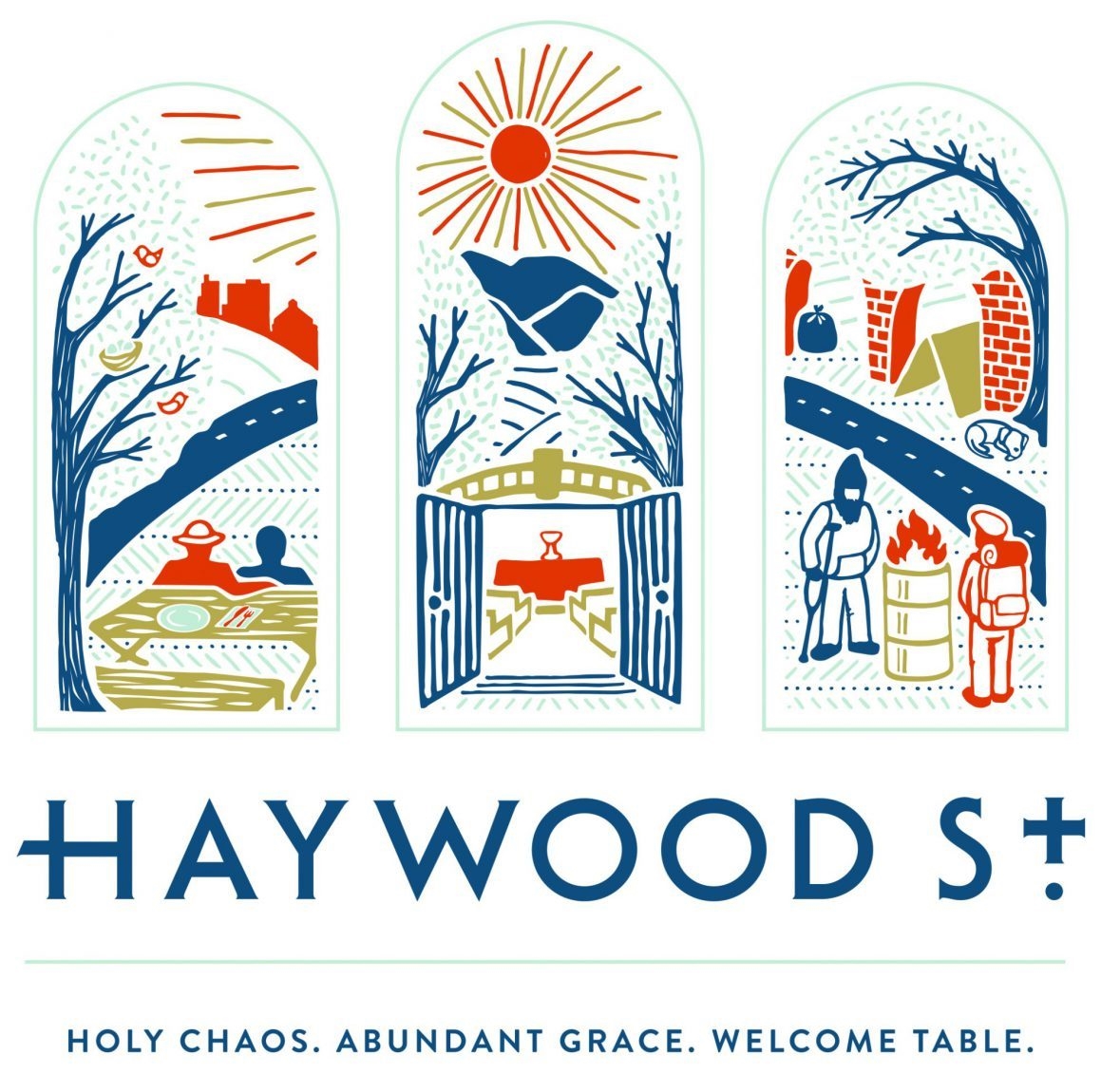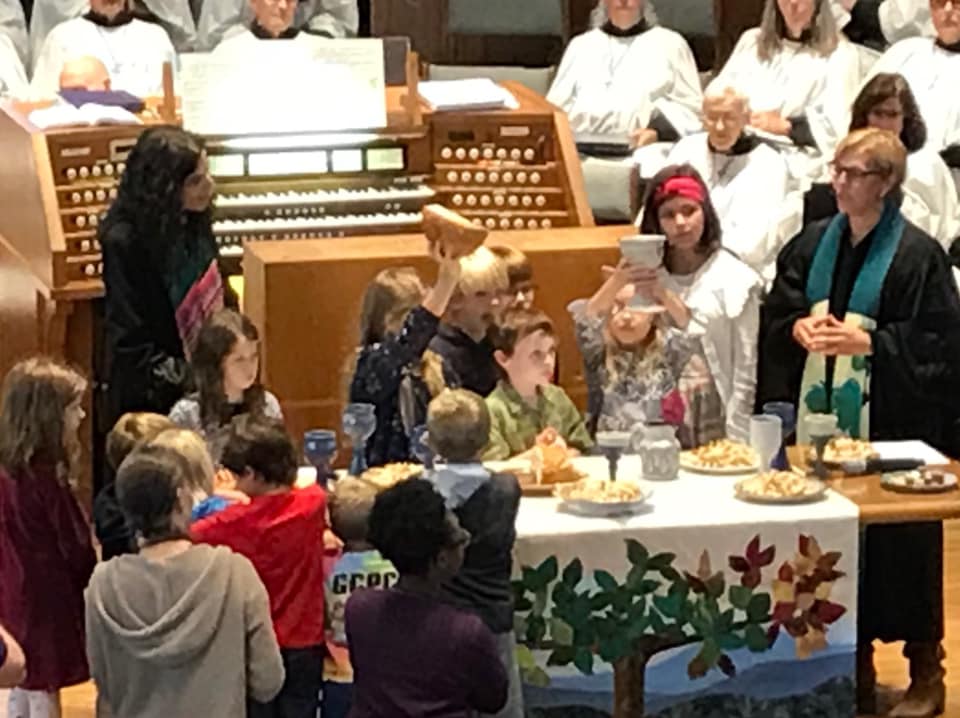I have a difficult time “tooting my own horn,” as they say so I am grateful Joyce Hollyday who helped me write my book, Forgetting the Former Things: Brain Injury’s Invitation to Vulnerability and Faith, wrote a post on her blog about it on June 6 2019. (joycehollyday.com). I am printing it below.
“The jangle of an incoming text woke me from a deep sleep. “We’re in trouble,” it began. It was 5:16 a.m. California time. I was 2,000 miles from home, jet-lagged and groggy. I managed to send a reply to Michael along the lines of “Be there as soon as I can.”

Tamara, Michael, and Sparky at the beach
Michael Galovic and Tamara Puffer met almost 25 years ago at the Open Door Community in Atlanta, when he was living there as a resident volunteer and she showed up one day to help out in the soup kitchen with the youth group from the suburban Presbyterian church where she served as associate pastor. Tamara kept coming back. Her time at the Open Door reshaped her theology and calling, and she began seeking a position where she could serve marginalized people like the homeless ones and former prisoners who were revealing Jesus to her there in transformative ways.
In August 1996, just three months after they married, both Tamara and Michael sustained brain injuries in a car accident, Tamara’s the more serious. I was in Atlanta then, just starting my second year of seminary at Emory and spending a lot of time at the Open Door. I remember the shock of the news and the prayers that went up from many corners.
Tamara spent two weeks in an induced coma and then, though she wasn’t fully aware of it at the time, woke up to a totally different life. She had to relearn how to walk and speak and write. A former professional violinist, she no longer possessed the mental focus or manual dexterity to play, and she had to climb out of an abyss of despair to accept that she would never again serve a church as its minister.
Tamara and I caught up with each other again years later when we were both living in Asheville, North Carolina. She asked if I would help her write a book. One of the great joys of my life is working with people to bring their life journeys into print, and Tamara’s, I knew, is among the most extraordinary. I felt honored by the invitation.

It took us three years to birth Forgetting the Former Things. During Tamara’s long rehabilitation after the accident, on nights when dread had kept her from falling asleep, words from the 43rd chapter of Isaiah echoed through her mind: “Do not remember the former things…I am about to do a new thing.” The book title is a double entendre that speaks of both the memory challenges that result from brain injury and the need to let go of what once was in order to be open to re-imagining one’s life.
Throughout our work, I was moved by Tamara’s heart, courage, and perseverance. The challenge of writing a book seemed at times overwhelming, and more than once she considered giving up, but always she found the strength to keep on. We can all rejoice that she did. Forgetting the Former Things is a rare tapestry of first-person faith journey woven with gritty theological reflection and persistent hope.
In June 2017, with the book almost finished, we were at Azusa Pacific University near Los Angeles, where we were scheduled to lead a workshop at the Summer Institute on Theology and Disability. Travel is particularly difficult for many people with brain injuries, and the “trouble” came to Tamara as a result of the stress, disorientation, and overstimulation of a cross-country trip via two of the world’s busiest airports, compounded by jet lag and lack of sleep. Michael’s early-morning text was the beginning of a grueling, heartbreaking day that ended with Tamara being taken by police and emergency medical workers to a behavioral health hospital.
“This is the worst thing that could have happened,” I lamented to Michael, both of us raw from concern and exhaustion. I thought of all the time spent planning our workshop, and Tamara’s excitement and anticipation of it, now all lost. Three days later I was shocked when she announced upon her release from the hospital that she wanted to offer the workshop at a rescheduled time. She went right to work modifying it to incorporate the recent trauma.
My fear that the experience was a setback that would derail completion of Forgetting the Former Things evaporated when Tamara instead gave it a prominent place in the book. She wrote that, in a world of fast food and instant communication, of cutthroat competition and the illusion of self-sufficiency, where busyness and stress are considered normal, “Those of us who ‘can’t keep up’ can be teachers…Those of us with disabilities offer the world the gift of our vulnerability. We know that life is an endlessly moving target. We’re always responding to uncertainty, re-creating ourselves, being reshaped by the Spirit as we journey on through the wilderness to the next mountain.”
Back in 1996, a few weeks into her intensive rehabilitation after the accident, Tamara had a profound insight, which she also reflected on in Forgetting the Former Things: “In one life-shattering moment I had gone from feeling like someone in control—with a clear career path, the privilege of choice, and a measure of power—to being an invisible person on the sidelines, merely trying to cope with each challenge as it came and get through each hour as it unfolded. I wasn’t simply feeling called to ministry among the marginalized. I was the marginalized.”
After California, Tamara began embracing a calling that she has named “minister of vulnerability.” At the workshop there, and wherever she and I have spoken to crowds about her recently published book, her story moves others to share their own. As they pour out their deepest fears and longings, often with great emotion, I think about how much this world needs Tamara Puffer’s ministry. And I whisper a prayer of thanks for her courage.
Forgetting the Former Things: Brain Injury’s Invitation to Vulnerability and Faith, by Tamara Puffer with Joyce Hollyday, is available through bookstores and at https://wipfandstock.com/forgetting-the-former-things.html.”








 I went to worship, late of course. I always sit in the front so as not to be distracted by rustling paper and other sounds. The service was full of energy and life giving. The children even helped with communion as pictured. I stayed to hear Jeff play the postlude which I don’t often do due to my weakened cognition. I knew I didn’t have much cognitive energy left so I quickly walked to my car. It wasn’t there.
I went to worship, late of course. I always sit in the front so as not to be distracted by rustling paper and other sounds. The service was full of energy and life giving. The children even helped with communion as pictured. I stayed to hear Jeff play the postlude which I don’t often do due to my weakened cognition. I knew I didn’t have much cognitive energy left so I quickly walked to my car. It wasn’t there.


 Faith 4 Justice is studying and reading this book together. This was announced at the last meeting I attended but since I didn’t write it down, I forgot. After the business portion of the meeting, Tami told us to split into groups of two and answer a few questions, one at a time. What that meant was one person from each group speaking and there were about 7 groups. I knew it was a difficult environment for me, so I slipped out and “rested my brain” returning after the discussions.
Faith 4 Justice is studying and reading this book together. This was announced at the last meeting I attended but since I didn’t write it down, I forgot. After the business portion of the meeting, Tami told us to split into groups of two and answer a few questions, one at a time. What that meant was one person from each group speaking and there were about 7 groups. I knew it was a difficult environment for me, so I slipped out and “rested my brain” returning after the discussions.